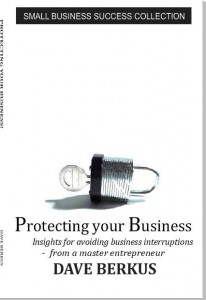It has happened to all of us who have been leaders in business long enough. One of your employees is approached by an employee of a customer or of a supplier, stating that “It sure would be great to work in your company.” And without a policy or sometimes without thinking, your employee responds with a “Let me help,” or worse yet, “I have a position open.”
You should be clear from the start that no one at your company may offer a job to any current employee of a stakeholder – a customer, a partner in development or in distribution, or of a supplier. The rule should be one that includes only one “out”: if a person resigns from the position with the stake-holding company, then you will be happy to talk about a position. No winking, sending signals, or quiet promises.
[Email readers, continue here…] There are instances where such an existing stakeholder employee offers to go to his or her boss and ask  permission to speak with you, and the boss not only concurs but agrees to call you (not just to take your call). In that case alone, it is proper to continue as far as the offer and beyond.
permission to speak with you, and the boss not only concurs but agrees to call you (not just to take your call). In that case alone, it is proper to continue as far as the offer and beyond.
Let me tell you the story from one of my companies that recently learned about the recruiting boomerang the hard way. The CEO checked into a hotel that was a customer for its enterprise management system, and through a few innocent questions found that the owner was about to purchase several new systems for his new projects. The front desk clerk cheerfully gave the CEO the owner’s contact information.
So the CEO called the owner that day. “I will never deal with your company again!” was the short reply from the owner to the CEO. It turns out that a manager from the CEO’s company had recently thrown the recruiting boomerang at that very same cheerful clerk, hinting that a job would be available if she’d like to apply. The clerk told the owner, and the rest is history.
Properly, the CEO begged the owner for forgiveness, immediately sent an email to all managers reinforcing the existing policy of not hiring a stakeholder, and spoke to the person making the offer in a non-threatening tone, again reinforcing the policy. During the phone conversation with the owner, the CEO carefully set the stage for a later call to mend fences and check on progress with the existing system already installed. He made all the right moves given the situation.
But wouldn’t it have been easier to avoid throwing the recruiting boomerang in the first place?






